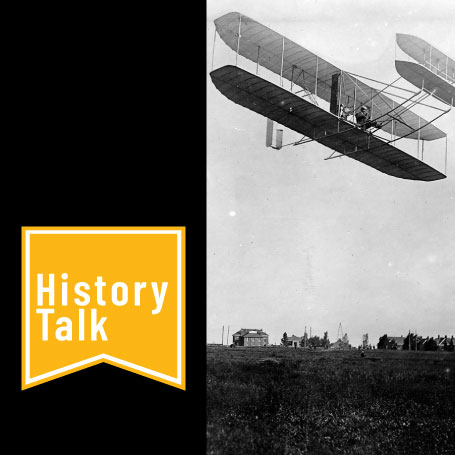The Army has frequently been a leader in recognizing and developing new technology and inventions to improve its effectiveness on the battlefield. Following the Wright Brothers’ success, the Army challenged the inventors to provide an aircraft that would carry two passengers, fly 40 miles per hour, and remain airborne for an hour. The result, the Wright Model A, was tested and accepted by the Army in 1909 at Fort Myer, Virginia. The purchase constituted the Army’s first air force.
Discover how the Wright brothers countered the problems of control and balance through experimentation to achieve success. Discover how the U.S. Army harnessed this new technology to improve readiness and learn how in turn that technology impacted civilian life.
Register for the VIRTUAL History Talk on December 4 at 12 p.m. ET

Virtual (Zoom)
